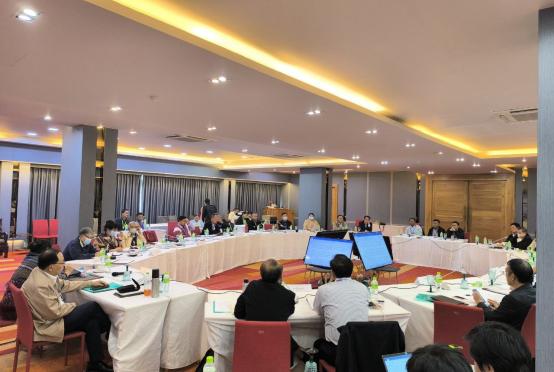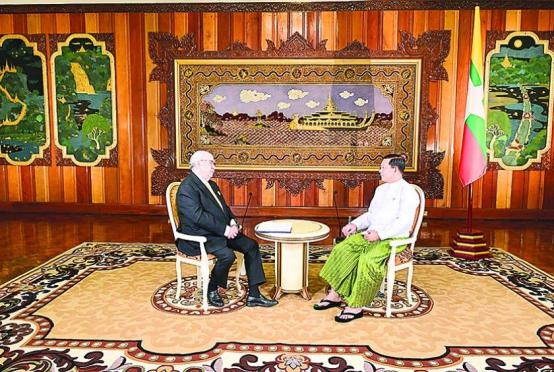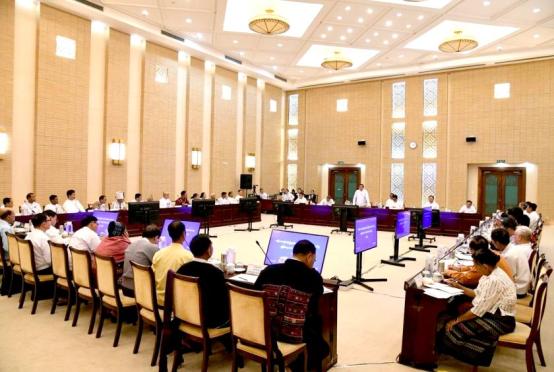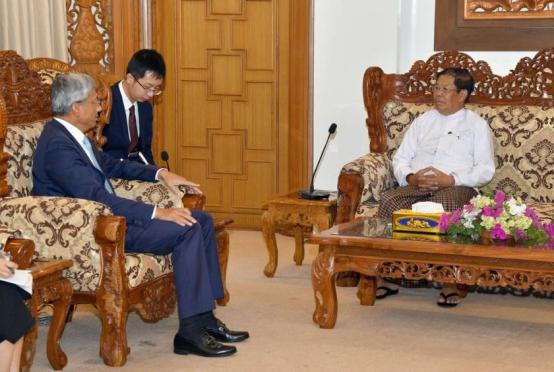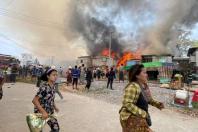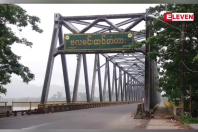It is questionable whether the ethnic armed groups in the five command areas where the military has announced ceasefire really want to make peace, said Major General Soe Naing Oo, chairman of Tatmadaw (Military) True News Information Team.
The major general made the remark during a military press conference held at the
Defence Services Museum in Nay Pyi Taw on June 22. At the press conference, the military's internal peace efforts and peace and stability measures in Rakhine State.
The remark came after a reporter from RFA asked the military side if it has a plan to extend the ceasefire period after the first two-month extension.
"We will mainly consider that depending on their activities. Broadly speaking, we announced 130 days of ceasefire from December 21, 2018 to April 30, 2019 for the first time. The second extended period is from April 30 to June 30. We have already said why we extended the ceasefire period. We have talked about it in detail. The reason is for coordinating and negotiating with the ethnic armed groups that have yet to make ceasefire in the five military command areas where ceasefire is announced so that they can become signatories as quickly as possible. That is why the NRPC (National Reconciliation and Peace Center) is also doing this. Discussion sometimes failed just because of venue choice. We want to say whether they are really want to achieve peace. We are holding press conferences monthly to let you know which groups are doing what and which groups are violating in the five command areas. We have warned them against military build-up, territorial extension, extortion collection and bullying. Further ceasefire depends on their activities and meeting results," said Maj-Gen Soe Naing Oo.

